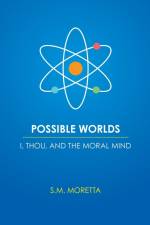av S. M. Moretta
337
We humans have a "moral mind". Which is not to say that we are intrinsically good, but rather that we think in terms of good and evil, fair and unfair, compassion and cruelty. And while moral dictates vary between cultures, all societies have standards, principles that define relations between "I and Thou", "Us and Other". Given the impact of morality on the quality and character of our lives, it can be said that we live in as many "possible worlds" as there are "possible moralities".Voila! There is, in fact, a logic behind the title of this book. This exploration of the elements, the concepts, through which moral judgments are made. This journey through various philosophical quandaries: is morality principally the product of reason or emotion? Is it possible to derive a value from a fact, an "ought" from an "Is"? Might there be moral imperatives that are universal, adequate everywhere and at all times? It is in the light of these questions, and the human situation in general, that I dive into modern ethical theory and moral psychology. Considered in particular are the contributions of Kant, Hume, Schopenhauer and De Beauvoir. Relevant insights and analysis from other thinkers are also presented in some detail. I was raised and educated in New York State. My college curriculum focused principally on philosophy and psychology, and I have been a student of both ever since. This essay is the result of five years of research, writing and contemplation, followed by seemingly endless editing, re-editing and further editing and re-editing.Possible Worlds - I, Thou and The Moral Mind follows on the heels of my first book, Consciousness and The Limits of Reason. Possible Worlds is, I believe, straightforward and accessible, in part due to the subject matter, and in part due to the fact that it was written for normal people, meaning those who have notspent the better part of a lifetime studying philosophy. Steven Moretta, Santa Clara, California

